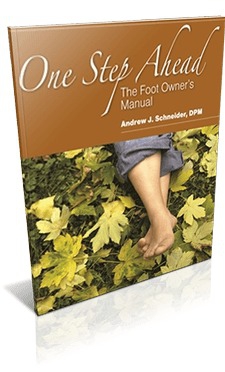
What is toe walking, and when is it a cause for concern? Well, picture this. Your baby is first starting to cruise (that means walking while holding on to furniture or any other low, stable object.) At this point, it’s often common to see him or her toe-walking. And this simply describes a walking pattern in which a child walks on the balls of his or her feet. As a result, there is no contact between the child's heels and the ground as he or she moves.
In some cases, this gait is just a natural developmental stage. For others, it could be a sign of other issues. In this post, we'll help you understand more about toe walking. We'll explore why it happens, when it's normal and when it's a sign to bring your little one into the office.
Early Toe Walking
Most children begin walking at 12 to 15 months of age. When children start to learn how to walk, they try different foot positions. During this stage of development, walking on their toes may be normal.
By around the age of two, kids should walk with their feet flat on the ground. And by three? Children should walk using a heel-toe pattern.
In other words, early toe walking is common. The same is true of flat feet; most young children have feet that appear flat. But, by about the age of two or three, children should outgrow both issues.
While it is less common, some children do continue to walk on their toes, even after taking their first steps independently. In fact, some kids will continue to walk this way for several years, well past toddlerhood. So the question is, when, if ever, should you start to worry about your child’s toe walking? Let's take a closer look.
Why is Toe Walking Ever Problematic?
First of all, let’s talk about some of the rumors you may have heard. If you google toe-walking, you might read that it can be a sign of conditions like autism and cerebral palsy, since both affect development. Now, we're never fans of Dr. Google. But there is an element of truth in this finding. Just not the kind you're thinking.
You see, it is true that as many as 41% of autistic children do toe-walk. But the fact that your child walks this way DOES NOT mean that your little one is autistic. In fact, five-percent of all kids have toe-walked at some point in their life. And they've done so without any developmental delays. In this case, we'd call it idiopathic toe-walking. That means it's a stand alone condition, and it is not a good indicator of bigger problems.)
So, that's one thing that doesn't need to freak you out if your child walks on his or her toes. But it could still be cause for concern at some point. Now, when should you start to express concern about your child’s toe-walking?
By age 6, most kids will naturally outgrow toe-walking. In general, it is not a cause for concern prior to that age, though as I mentioned, most kids outgrow this habit three years earlier.
For that reason, I suggest mentioning it to me as your child’s podiatrist before that sixth birthday. And that's because some toe-walking may be the result of a shortened Achilles tendon. Which, if not addressed early on, could lead to other painful problems for your child.
Shortened Achilles Tendons in Children![diagram of foot anatomy causing Sever's disease]()
There are many different reasons why your child's Achilles tendon may be shortened. Some would be obvious at birth, because this condition is a common side effect of clubfoot or rocker-foot. In other cases, the problem could develop alongside other conditions such as flatfoot or Sever's disease. (See the image at right for a better understanding of this condition.)
Less often, this shortened Achilles tendon accompanies a neurological disorder. These could include cerebral palsy, poliomyelitis or spina bifida. But, again, having a short Achilles tendon doesn't mean your child has a neurological condition. Just as toe walking doesn't mean your child is autistic.
Treating Achilles Tendon Concerns to Correct Toe Walking
After addressing underlying conditions that could shorten the Achilles tendon, we can address the shortening itself. At first, we'd start with the least invasive option possible. This includes physical therapy to gently stretch the tendon and the muscles in your child's calf.
If that doesn't resolve the problem? Not to worry! Next, we can try splints or braces, as these can help your child achieve a normal gait. In certain cases, we may even cast your child, so that his or her toes move to the proper position. This will encourage typical development, a normal gait, and could prevent future problems.
Addressing Idiopathic Toe Walking
Even if a short Achilles tendon isn't causing toe walking, we'll want to work on your child's gait. Why is that the case? Well, toe-walking can lead to some discomfort for kids. So we'll want to maintain regular check-ins if your child is toe-walking. We can work on different approaches to improve gait. And to prevent complications.
Remember, before the age of six, toe-walking is something to talk about. But it's not a major cause for worry.
However, past the age of six? It's something we need to talk about more seriously. If toe-walking is causing your child discomfort or concern, we'll need to look at more invasive treatment options. These may include surgically lengthening the heel cords, or an Achilles tendon lengthening surgery.
But I want to emphasize that those procedures rarely need to happen. Why? Because the majority of the kids I see who toe walk end up perfectly fine. Very few will ever need to undergo serious intervention to correct this issue.
Before I sign off, I want to give you one last thought to hold on to. As your child grows, each new stage can bring joy. But it can also be a cause for anxiety. So, I want you to know this. If you ever have concerns about your child’s developing feet? I don't want you to sit at home, worrying. Instead, schedule an appointment with your Houston pediatric podiatrist. I'll conduct a comprehensive foot evaluation and make sure your child is enjoying healthy development.




















